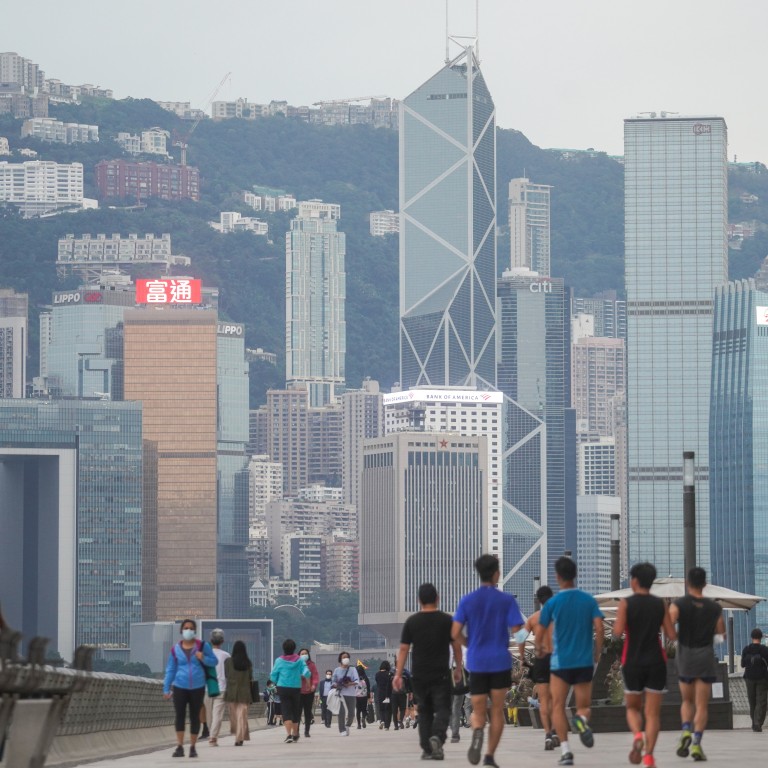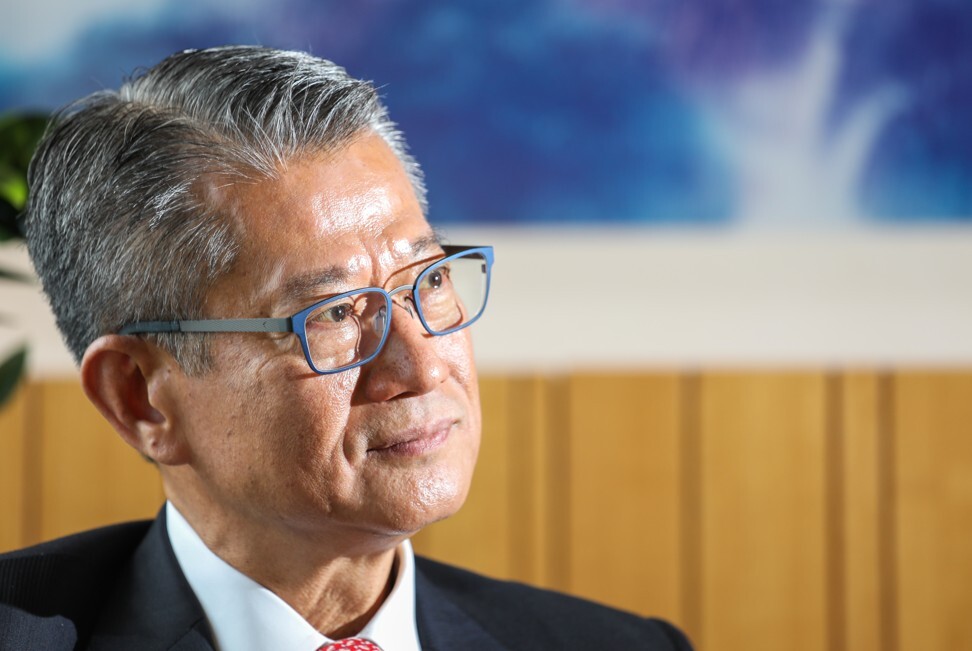
Hong Kong’s finance minister signals there will be no cash handout in his coming budget, despite surge in stamp duty revenue
- In rallying call, Paul Chan urges Hong Kong enterprises to harness economic opportunities despite Sino-US tensions he predicts will endure under Biden presidency
- ‘This year it will be difficult to roll out more sweeteners,’ Chan tells Hongkongers ahead of February 24 budget
Hong Kong’s finance minister has dropped the biggest hint yet that residents will not get another cash handout in the coming budget, despite a surge in stamp duty revenue alleviating what is still expected to be the city’s largest-ever budget deficit.
“This year it will be difficult to roll out more sweeteners [cash handouts] as we need to weigh up spending based on our revenue,” Chan said ahead of his February 24 budget speech.
“To cater to various social needs for coping with the pandemic, we need to devise a combination of measures … We need to be prudent [about giving handouts].”
Hong Kong can emerge from recession this year, financial chief predicts
“We gave out cash last year but there were views that we should have adopted a more targeted approach,” he added.
The minister admitted to a radio programme that the scale of sweeteners to be announced in the budget speech would be reduced in the face of an expected record budget deficit totalling more than HK$300 billion (US$38.5 billion) in the year to March, even though he said that figure might be revised down.
He previously attributed the growing deficit partly to a 25 per cent increase in recurrent spending over the past three financial years, with the city’s outgoings expected to reach HK$486.6 billion in 2020-21.

However, Chan admitted the actual 2020-21 budget deficit could be lower than the record more than HK$300 billion forecast, pointing to a sharp rise in stamp duty income and the transfer of tax takings to last year’s accounts.
“The stamp duty charged on stock transactions was more than expected as a result of high trading volumes in the local stock market,” he said.
“Also, due to filibustering at the Legislative Council in 2019, part of the tax revenue generated that year has been transferred to last year’s account. In other words, the actual deficit may be a bit less than our estimate of over HK$300 billion.”
Hong Kong unemployment ‘to surpass 7 per cent’ after Lunar New Year
But Chan pledged to formulate a countercyclical fiscal policy – one that advocates higher spending and lower taxes in a recession – through measures aiming to revive the economy and ease Hongkongers’ financial hardship.
“We will rein in spending but will also invest in some worthy infrastructure projects to support the city’s employment,” he said. “At the same time, we need to take care of those in difficulties … We will mobilise our resources to try our best to help relieve people’s financial pressure.”
Chan predicted that wrangling between China and the United States would drag on despite Joe Biden becoming US president.
“I think the Sino-US rivalry and tensions would continue and there won’t be too much change in the bilateral relations,” he said.

He said while the strained relations created risks for Hong Kong, there would also be opportunities, as he urged local enterprises to capitalise on the mainland’s rapid economic growth and the city’s unique status as a bridge between China and the rest of the world.
“Many Chinese enterprises might return to Hong Kong to seek a listing while foreign firms might make use of Hong Kong to break into the mainland market,” he said.
“There may also be risks for Hong Kong as the Sino-US rivalry may affect the stability and volatility of the local financial market.”
He added: “So Hong Kong should make full use of its unique role as a window to China. It needs to be flexible in positioning itself.”
Hong Kong’s richest feel the pinch as mainland peers thrive, report finds
Asked if HKEX’s announcement was a pre-emptive move designed to bypass the watchdog, Chan declined to comment further, only saying that the SFC had a final say on the appointment.
Aguzin’s proposed appointment as the first expatriate to take up the key role at HKEX also raised questions on whether there would be any national security implications.
Chan said the SFC would take into account all relevant considerations.
Chan added the government’s focus would be on enhancing the city’s competitive edge, including the financial sector and the development of innovation and technology.
Hong Kong soothsayers say Ox spells good times for Lam and hope for economy
“For developing innovation and technology, Hong Kong needs to partner with its neighbouring cities such as Shenzhen and Dongguan for mass production,” he said.
“We also ask the Science Park and Cyberport to collaborate more with foreign science institutions to roll out more projects and attract talent.”
Simon Lee Siu-po, co-director of the international business and Chinese enterprise programme at Chinese University, said the government should offer targeted support to those truly getting hammered by the pandemic, such as the tourism industry.
He also called on the government to roll out an unemployment fund to ease the plight of those in need.
“I agree that there’s no need for a cash handout to everyone. But there are many people really suffering a hard time during the pandemic such as those working in the tourism sector and other hard-hit sectors, and those out of a job,” he said.
“The government could offer targeted help to these people. It should set up an unemployment fund to provide immediate help to the jobless people.”
Lee also advised the government to provide more tax relief to help Hongkongers ride out the crisis.

